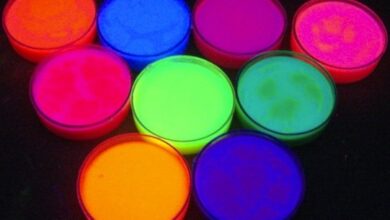Dehydration vs freeze drying Similarities and FAQs
Dehydration vs Freeze
In this aritcle we will provide you the information about the Dehydration vs freeze drying Similarities and FAQs.
What does dehydration mean?
Dehydration refers to excessive loss of body fluid, which includes both water and minerals. This condition is caused by dehydration of the body, when fluid levels fall below normal. The most common symptoms are intense thirst, dry mouth and fatigue; However, if not treated properly, serious complications such as electrolyte imbalance or hypovolemic shock can arise. Dehydration can also be a problem in extreme and hostile environmental situations where there is a lack of available drinking water . Therefore, it is important to prevent it by consuming adequate fluids to keep our body hydrated and healthy.
What does freeze drying mean?
Freeze-drying refers to the dehydration process by which a liquid product, generally in the form of a solution or suspension, is frozen and subjected to a vacuum to remove water. This technique preserves the chemical, biological and physiological characteristics of the original material until its reconstitution. The main benefits of freeze-drying are the long-term stability of the dried material without the need for additional preservatives; the significant reduction in weight and volume that facilitates handling; as well as a longer shelf life because dried products can be stored for long periods without losing their important properties.
Similarities between dehydration and freeze drying
Both dehydration and freeze-drying are processes used to preserve foods. This is achieved by removing most of the water from the products, which is the main medium in which bacteria or molds grow. Dehydration involves cutting products into small pieces and drying them with hot air; This process reduces the water content by 10% to 15%. On the other hand, freeze-drying involves freezing food first before subjecting it to a vacuum to extract its water content: this technique allows humidity to be reduced to levels below 5%, which makes it much more effective in extending its shelf life.
Differences between dehydration and freeze drying
Dehydration is a food preservation method that involves the removal of water, which reduces microbial activity and prevents spoilage . This technique can be done by different means such as hot air, freezing or even salt. For its part, freeze-drying is a process in which foods are subjected to extreme temperatures (between -40°C and -80°C) to dehydrate them. The final result is a dry and light product, but one that retains its original nutritional characteristics thanks to the advances of this modern technology.
Frequent questions about Dehydration vs freeze drying
What are the symptoms of dehydration?
Common symptoms of dehydration include extreme thirst, dry mouth and throat, fatigue, headache, vomiting and diarrhea. You may also experience dizziness or mild confusion. If dehydration is severe, signs may include severe muscle weakness, low blood pressure, and even seizures or coma.
What to do to eliminate dehydration?
To eliminate dehydration, it is important to drink enough fluids to replace lost fluids. Drinking water or a sports drink with electrolytes can help replace minerals and salts lost through sweat. It is also recommended to consume nutrient-dense foods such as fruits, vegetables, and lean proteins to restore your energy levels.
What happens when the body is dehydrated?
When the body is dehydrated, symptoms can include fatigue, headaches, lethargy, and general malaise. There may be a reduction in urine production and a high concentration of minerals such as sodium in the blood. Dehydration can also increase the risk of serious complications such as a heart attack or stroke.
How long does it take to recover from dehydration?
The length of recovery depends on the degree of dehydration. If it is mild dehydration, the body can replace lost fluids in about 1-2 hours by drinking adequate fluids such as water or juice. However, if it is severe dehydration, it may be necessary to seek medical attention to help replace fluids and other important nutrients.
What is freeze drying and what is it for?
Freeze-drying (also known as freeze-drying) is a preservation process by which water is removed from foods, pharmaceuticals, and other materials. The main goal of freeze-drying is to preserve ingredients and improve their durability so that they can be transported and stored long-term without the need for refrigeration or other expensive and inefficient forms of preservation. This technique preserves the quality of the original product, maintains its organoleptic properties, prevents microbial deterioration and ensures that the sensory characteristics remain intact for months or even years.
How is freeze drying done?
The freeze-drying process involves dehydrating and rapidly freezing the product to preserve the original compounds. This is achieved using a special chamber that reduces atmospheric pressure, allowing water vapor to evaporate without passing through the liquid state. The product is then subjected to temperatures below -50°C (depending on the product) for several hours to eliminate all the water contained in it, resulting in a type of dry powder that can maintain its nutritional characteristics unaltered for long periods of time. time.
Where is freeze drying used?
Freeze drying is mainly used in the food and pharmaceutical industry to preserve products, such as dried fruits, medicines, food ingredients, and other products. It has also been used successfully in the field of biotechnology to preserve living cells and biological material.
What is the difference between freeze drying and dehydration?
Freeze drying is a dehydration process in which the material is frozen and then subjected to a vacuum to remove most of the water contained in it. This technique allows pharmaceutical, food and scientific products to be preserved, as well as vitamins, bacteria and other microorganisms for much longer. Dehydration is a process where water is removed through heat or evaporation to concentrate the dissolved solids present in a liquid medium. Generally the latter does not require extreme conditions such as freeze-drying, however both allow extending the useful life of the products.




